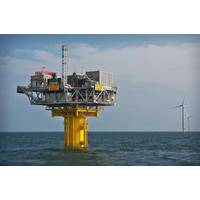Italy's Local Utility Shake Up Seen Tempting China
- Italy wants to slash number of local utilities
- Keen for big four regional players to grow through acquisitions
- Measures could spur foreign, Chinese interest
Italy's plan to reduce energy prices by pushing local government out of utilities and promoting mergers is likely to create larger, more efficient companies that could also appeal to foreign buyers, such as the Chinese.
Last week, the government of Matteo Renzi introduced a 2015 budget to stimulate the economy which contained proposals to offer incentives to public owners to sell their stakes in local service companies.
The law still needs parliamentary approval but already the market is warming to moves designed to slash the number of local utilities and make it easier for bigger players to gain critical mass and compete at home and abroad.
Rome has ruffled feathers in the European Union by putting back its goal of achieving a balanced budget to confront its severe economic slump and signs it is taking structural economic reform seriously could give it more leeway.
"We believe these measures should be seen as a first step in the right direction which is the reduction in the number of multi-utilities to reduce overall costs while increasing quality of the service," said Javier Suarez at Mediobanca Securities.
Italy, whose small businesses pay some of Europe's highest energy prices, has around 8,000 local service companies controlled by town and regional authorities and the government is looking to save 2-3 billion euros ($2.5-3.8 billion) by cutting the number to 1,000.
A spending review earlier this year said a consolidation process among the more than 1,500 companies operating in energy, water and waste could lead to a reduction in their numbers by about 80-90 percent.
The government's budget calls on city halls across the country to present plans to reduce the number of controlled companies before March 31 next year, offering public owners incentives to sell their stakes to raise cash for badly stretched local coffers.
At the same time potential buyers will be given breaks which could include concession extensions. Rome is eager for the four big listed regional utilities A2A, Hera Iren and Acea to play a role in the integration process to create national champions to sit alongside former power incumbent Enel.
"The measures need the parliamentary nod before year end and it's likely they'll be embroidered on," a government source said.
Consolidation is widely seen as critical for a sector that is largely made up of small undercapitalised companies which need economies of scale to make them more efficient. More than 60 percent, many in the poorer south, generate revenues of less than 10 million euros a year.
China Calling
But if the big four regional players have already flagged interest in growing their bases, foreign investors are also on standby, encouraged by the prospects for better corporate governance as fractious public owners bow out.
Companies such as GDF Suez, a shareholder of Acea, have expressed an interest in parts of the Italian utilities market while analysts say France's EDF, which already owns Italy's No. 2 utility Edison, could be interested in expanding further. Eiser Global Infrastructure fund of the UK is a shareholder in Hera's waste business.
The measures could create opportunities for other foreign investors, especially the Chinese who are already partners of state lender Cassa Depositi e Prestiti (CDP) and who, according to a source, are talking to infrastructure fund F2i to join it in investments including in Italy's energy sector.
"I'm sure Chinese players will be looking at selected investments in local utilities, it's natural... the entry in CDP was the first step to get into the regional utilities," said Alberto Forchielli, managing partner at private equity firm Mandarin Capital.
Power and gas networks as well as water and waste services have become an attractive asset class in recent years as their return is regulated, giving investors a predictable source of income even when the economy is struggling.
China's cash-flushed state power groups have been scooping up overseas assets in recent years, taking advantage of the euro zone crisis. Earlier this year State Grid of China bought a stake in the power and gas grids CDP controls.
Rome has been urging China to invest more in Italy for years. CDP -- already a shareholder in Hera and ready to invest 500 million euros more in the sector focused on the impoverished south -- this month signed deals worth 4 billion euros with China Development Bank and sovereign fund CIC.
"In the consolidation process under way an important role could be played by long-term investors (including) sovereign funds and development banks," CDP president Franco Bassanini said in a recent report on Italy's local utilities.
F2i, itself partly owned by CDP, is already present in Italy's waste, water and gas distribution sector and has made no secret it aims to grow its footprint.
(1 US dollar = 0.7898 euro)
(By Stephen Jewkes, Editing by Mark Potter)


